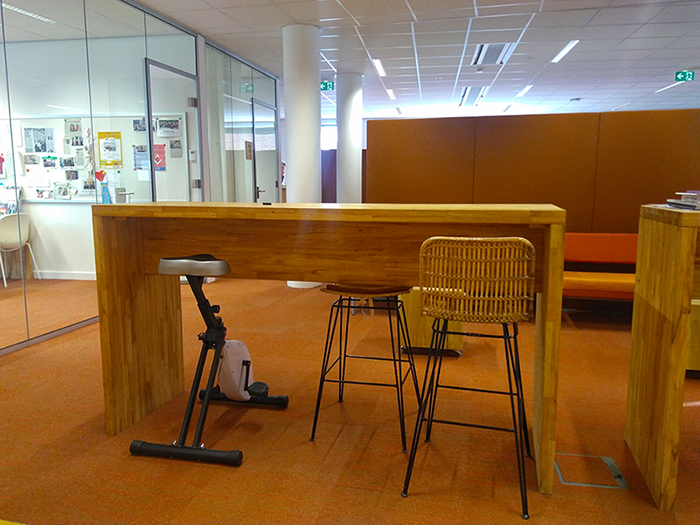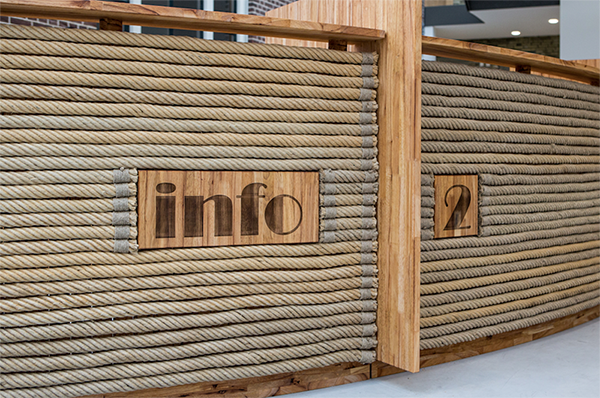Everyone plays a role in the circular economy
The other day, when I was walking on campus, I bumped into the Alternative Thesis Fair. “Are you looking for a thesis subject? We can help you!”. I thought: apparently not I’m the only one in doubt of what to do for my master’s thesis. Or beyond, what to do after it.
I entered the fair as discreetly as possible, afraid that someone would ask me anything about my career plans on a day that I was extremely introverted. The organizations presented subjects related to zero food waste, sustainable ecovillage practices, agroecological agriculture methods, among others. I was walking around when one of the presentations caught my attention in particular. The city hall of Wageningen was presenting the pilot projects they are doing in a circular economy to invite students to make proposals for new projects for the city to transition to this new economy.
A mixture of curiosity and happiness has taken hold of me for having the opportunity to see projects closely related to what I am studying at university. I could only repeat one thing to myself: “You see, you’re not crazy. There are projects going on outside.” Maybe I’m not that lost, after all.
GETTING TO KNOW THE WORK OF THE CITY HALL
The city hall of Wageningen is part of the Green Deal Circulair Inkopen (GDCI), a network of 46 organizations that are working together on several pilot projects to transition to a carbon neutral and circular economies by 2030 and 2050, respectively. The projects are co-financed by the European REBus project, which is carried out in the Netherlands by the Ministry of Infrastructure and Water Management. Together, they support circular purchases from entrepreneurs and network governments.
Throughout the building’s projects we are using sustainable raw materials, with attention to people and the environment.
In a conversation with Cynthia van der Roest, the purchasing adviser, she introduced me to some changes made to city hall renovation and design and told me a little bit about the process of buying these new products. Network members prioritize the following minimum conditions for a project to fit into a circular economy project:
- Preservation of raw materials, so that the product continues to be 100% reused by the manufacturer in a reverse logistics process
- Zero toxicity, which brought much of the changes in the furniture and cleaning products of the city hall
- Social justice, especially for care not to buy from suppliers who are involved in child labor
“Throughout the building’s projects we are using sustainable raw materials, with attention to people and the environment,” she said. “The city of Wageningen prioritizes social justice, although not everyone thinks that this is part of the circular economy. This is the main challenge, people need to have a vision and similar values to transition to these new economies.” Within the renovation and design projects, the following ones caught my attention:
100% recyclable and non-toxic furniture
The city hall has bought several items of furniture such as wooden table tops, cabinets and, chairs without glue or staples, to maintain the value of the material in the long term, to be completely reused by manufacturers after reverse logistics. Some of the suppliers of these furnitures are Flokk and Gispen.
Recyclable furniture (Photo: Thais Varella)
The reception tables made of used climbing and rubber ropes
The city hall gave a new function to the ropes used in the sports hall, reusing them at the reception desk.
Reception desk (Photo: Cees Beumer)
Toilets with items “cradle to cradle”
These items I noticed on my first day when I went to do the registration in the city hall. Well, that Well, that might sound strange, but I was not expecting to be surprised in the toilet. The sink uses an automatic system so there is no need to use soap in the washing process, and toilet paper is cradle to cradle certified.
Bathroom of the city hall (Photo: Thais Varella)
EVERYONE PLAYS A ROLE
It was a very important experience to get a closer look at the work that the City Hall is doing. I should always do this, in every city I live in, not just where it feels more “gezellig” (self-reminder).
The path to carbon-neutral and circular economies is long, while time is not that long. It is good to know that some larger organizations in the country, including the government itself, are giving priority to suppliers who work with social responsibility within their value chain, as a minimum requirement to fit into the circular economy. It is a stimulus for the entire value chain.
Projects not only here, but in the world, are still being developed and tested, and it is important that all stakeholders be involved to make this happen. It is up to us, students who want to make our cities better places to live, to understand within that system what types of incentives and services benefit both society and the environment in order to create more inclusive, circular, efficient and fair projects.
Note: Back to the beginning of the story … No, I have not found my topic yet, but I was inspired. I hope this article can inspire other people too!
To get to know more about Green Deal Circulair Inkopen (GDCI), click here.





